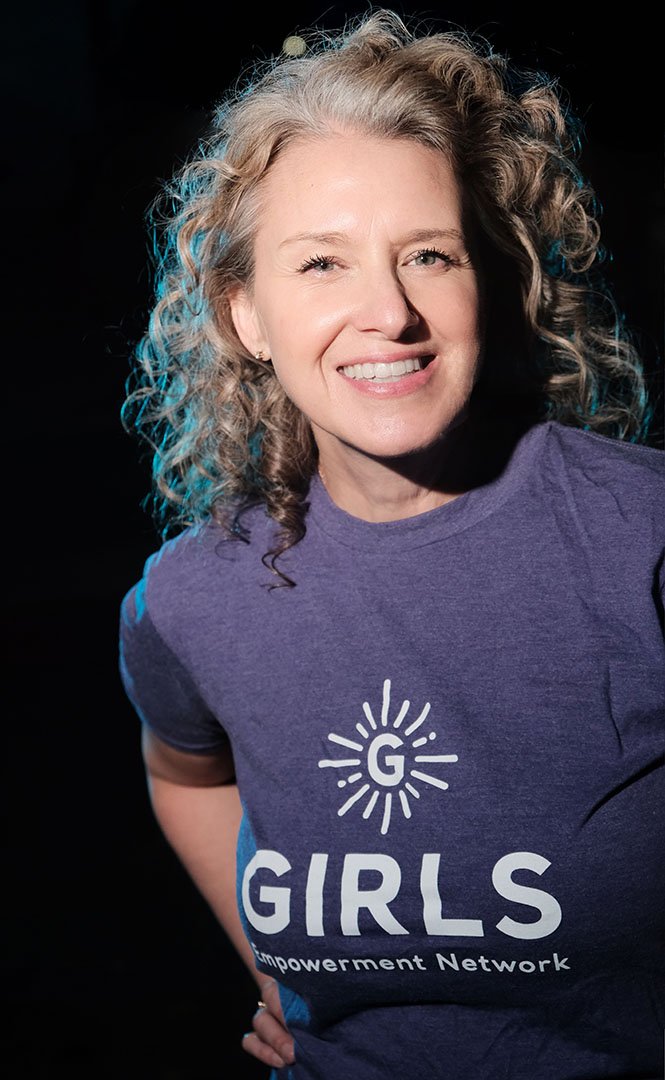17 Leadership Lessons Learned in 17 Years at Girls Empowerment Network as the CEO
written by Julia Cuba Lewis, CEO
When the staff of Girls Empowerment Network asked me to write this blog as I leave my CEO role, I thought it would be very easy to hammer out some lessons on paper and hit the submit button. However, selecting which lessons to share and remembering why each of them matters has been emotional. The challenge of leading a team to build a sustainable organization while navigating political, public health, and economic storms along the way has been a thrill a minute. And I mean that. Over seventeen years, I rarely found myself itching to get out or feeling bored. Every year of this job has presented a set of new and fascinating challenges because I was growing all the time. And it didn’t hurt that this mission takes up a sizable amount of real estate in my heart.
As I sign off, I want to leave these seventeen leadership lessons on the record.
If you are busy solving all the day-to-day problems, you aren’t building up your team or your organization’s sustainability. Set a vision, communicate it, and trust and coach your team to make good decisions. If they don’t, solve that issue instead of going back to solving the day-to-day problems.
Do what you say you are going to do. Not just you personally, but your organization. If you are touting a certain outcome, measure for it and find out if your organization can do it. You don’t have to spend $1 million on evaluation. There are simple ways to create a theory of change and measure micro elements of it to get to where you want to be.
Sometimes you need to pull the car over. Instead of racing down the highway and assuming everyone is aware of where you are headed. Stop, look them in the eye and find out where they think the org is headed. Listen to understand. Alter the road map if necessary. Get out and let them drive if they have the will and a desire to learn the skill.
Role model self-care. Too many service providers think the term “self-care” is a joke. Prepare your team, take time off, protect it, and show them how you burn brighter when you are rested. Emphasize self-care through culture and policies. Celebrate when teammates use it well and show up better because of it.
If your teammates are saying something is broken, then it is broken. It doesn’t matter what your intentions are or how it used to work. Most of the staff don’t know your intentions and don’t know how it used to work. They only know how it works now. Give them history/context and invite them to help fix it so it works in a new and better way.
Learn from the past instead of litigating the past. Pointing fingers, dwelling upon the drama of an incident, allowing the team to focus on the personalities involved in a mistake – these actions will produce toxicity. Focus on the complex systems involved in any challenge and seek to improve them. Role-model a culture where mistakes are welcome if we learn from them.
Be willing to tell your senior team they have something in their teeth. Don’t be afraid to hold up a mirror for them. Protect their dignity while you mentor, teach and coach them. Their successes will shape the future of the organization and ensure it can go on without you. Treat them like any one of them could be the next CEO.
Don’t be afraid to stop the meeting. When there is a gap in understanding between people who are sitting around the table, teach your team to stop the meeting and ask why. All too often people don’t trust their instincts and don’t seek clarification about underlying issues, which can result in deeply compromised outcomes.
People’s personalities should not be driving decisions. The needs of the organization should. Just because someone doesn’t like to do something doesn’t mean they shouldn’t do that something. Protecting personalities leads to favorites and toxicity. Drive toward a solution which puts the mission first, leverages team strengths, helps your teammates grow and does not shy away from accountability.
It doesn’t feel good or safe to work hard for less than adequate pay. Just because you did during your career doesn’t mean your team should.
Don’t ask your team to do additional heavy lifting on top of their jobs for which they are not compensated. Ask for their input and feedback and ensure the work is carried out by people who are paid for it. This includes contractors. No matter how compelling your mission is, no one wants to be a starving artist.
CEO’s can change. Sometimes it takes getting backed up against a wall and realizing the consequences of not changing. Why are you so opposed to certain ideas? Check yourself.
Yes, it is possible to have a values-driven, trust-based, people-first culture of belonging and be financially healthy at the same time. And it starts with you. It means rolling up your sleeves and doing the work – every day. It means having high expectations for yourself and others.
Lead effective meetings. If you are inconsistent, late, cancel, run overtime, assemble the wrong people, don’t ask for feedback or team insights, don’t share power, and don’t achieve intended goals, that is the culture you are setting for the entire organization. Be intentional.
A culture of celebration by itself can be silencing. When members of an organization don’t feel safe or heard when they say hard truths, celebration feels like a tool of silence instead of a genuine outcome of working together. Celebration must be accompanied with a commitment to hard conversations and accountability to those conversations. And if it is, the celebrations are all the sweeter!
Approach every day as a leader like it is a privilege. If you feel privileged to lead, you will have the patience and the drive to learn from the toughest challenges. And your team will feel privileged as well.
The more you are yourself, the better leader you will be. When we dim our own light, we lose clarity and authenticity in our decision making. Trust yourself. You have what it takes.
Bonus lesson:
Putting members of your team in the driver’s seat will not take away your power. It will make the organization more powerful!
I love you Girls Empowerment Network (staff, board, volunteers, donors, partners and youth). Thank you for the honor of my life in leading this precious mission. Helping girls discover they are powerful is more relevant now than it was when I began my role in 2006. I feel confident you can execute this mission with the highest integrity and highest impact. In these last months you have proven you can do it without me. I can’t wait to see how you change the world.
Julia Cuba Lewis was hired as the Executive Director for Girls Empowerment Network, formerly known as GENAustin, in 2006 and became the organization’s second employee in that role since the founding in 1996. Under her leadership, the agency established its signature self-efficacy curriculum, expanded services across key service regions in Austin, Houston, Dallas, and San Antonio, and adeptly navigated challenges during the pandemic. Julia’s journey reflects a tireless dedication to empowering girls and uplifting communities, embodying a spirit of leadership, empathy, and social change that continues to inspire and create lasting impact. Girls Empowerment Network is celebrating the Radiant Goodbye of Julia Cuba Lewis, for more information please visit the event page.

